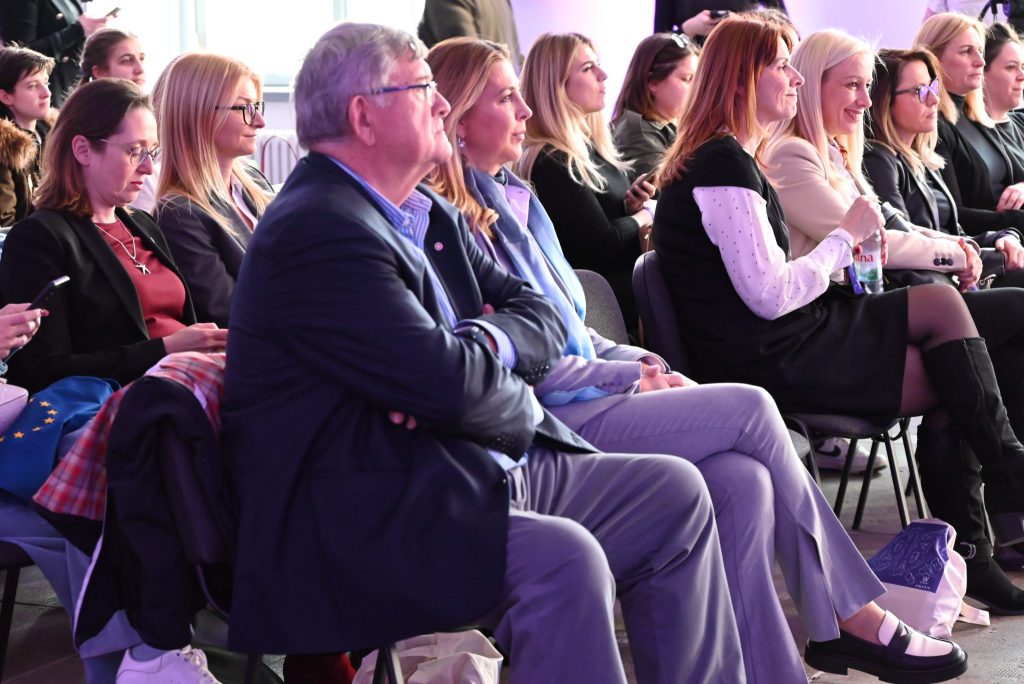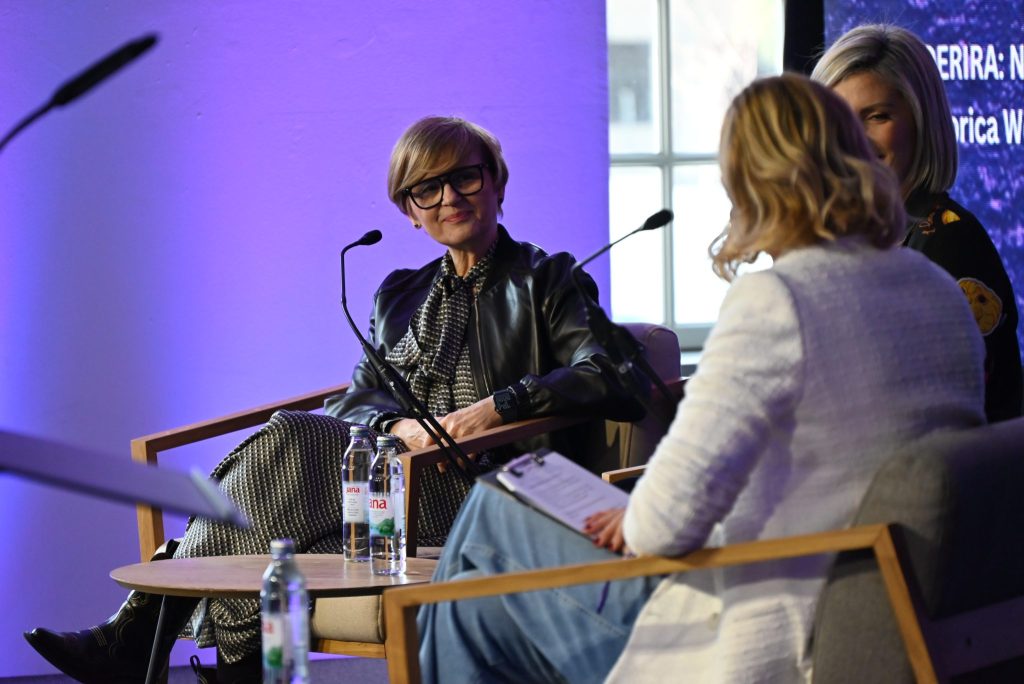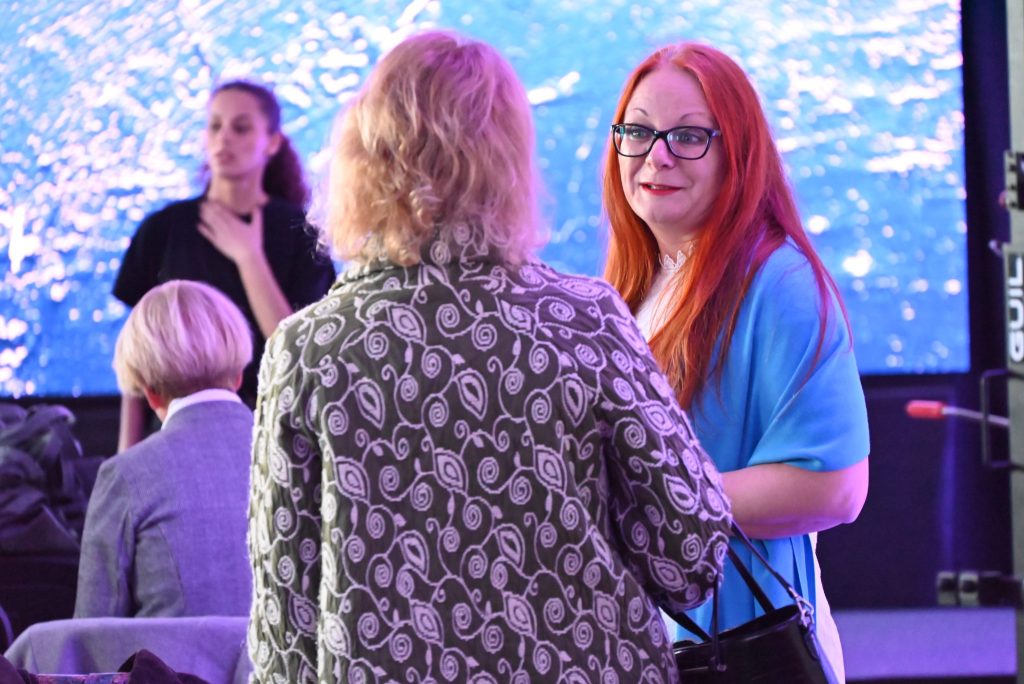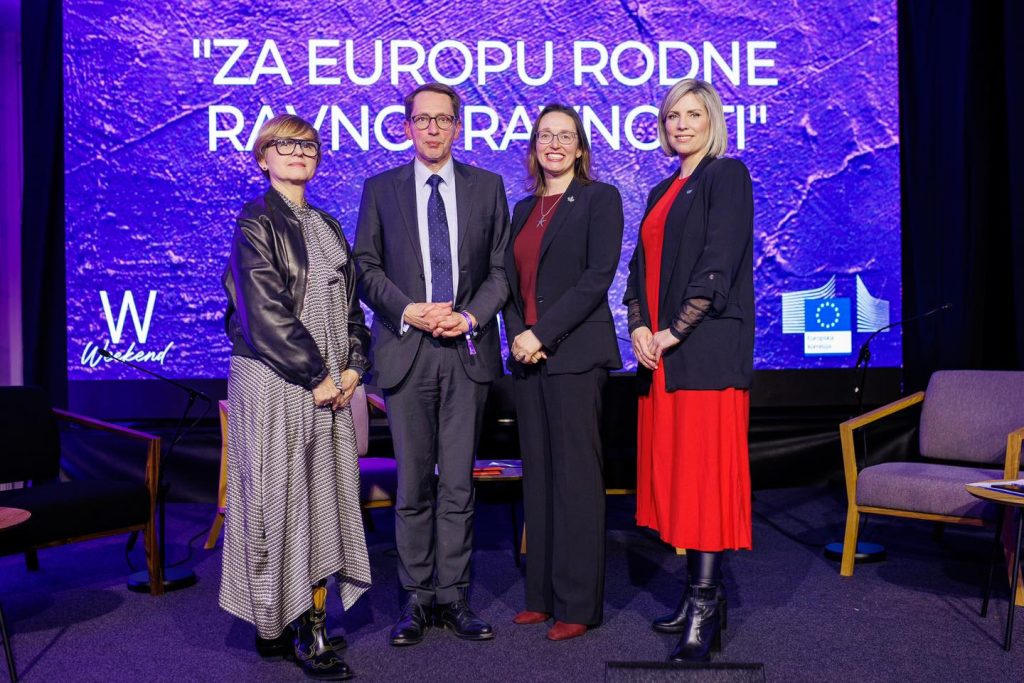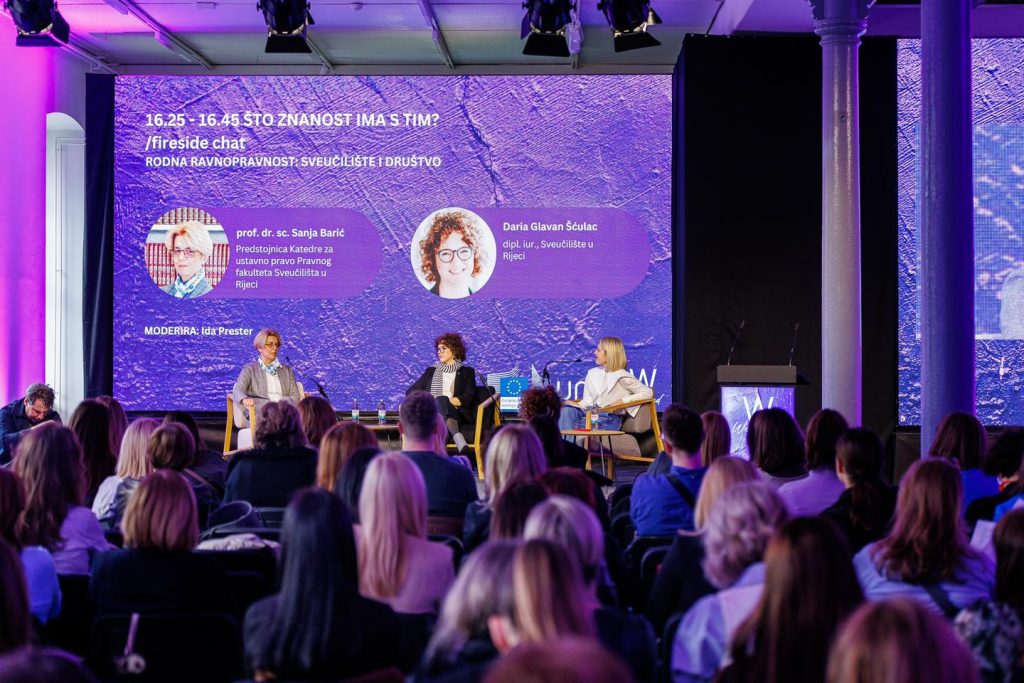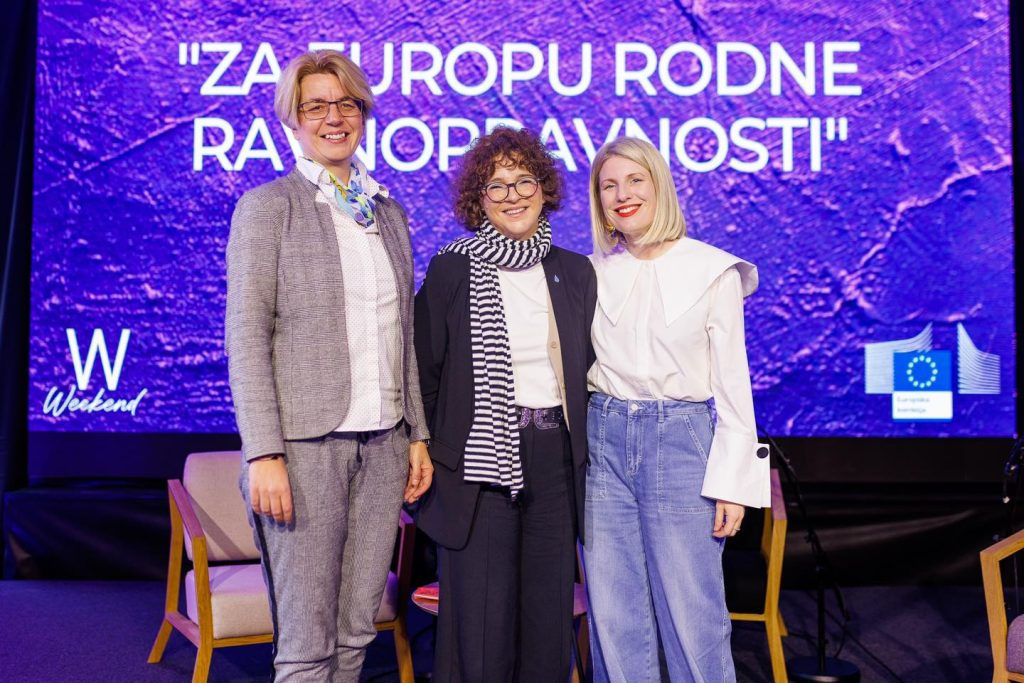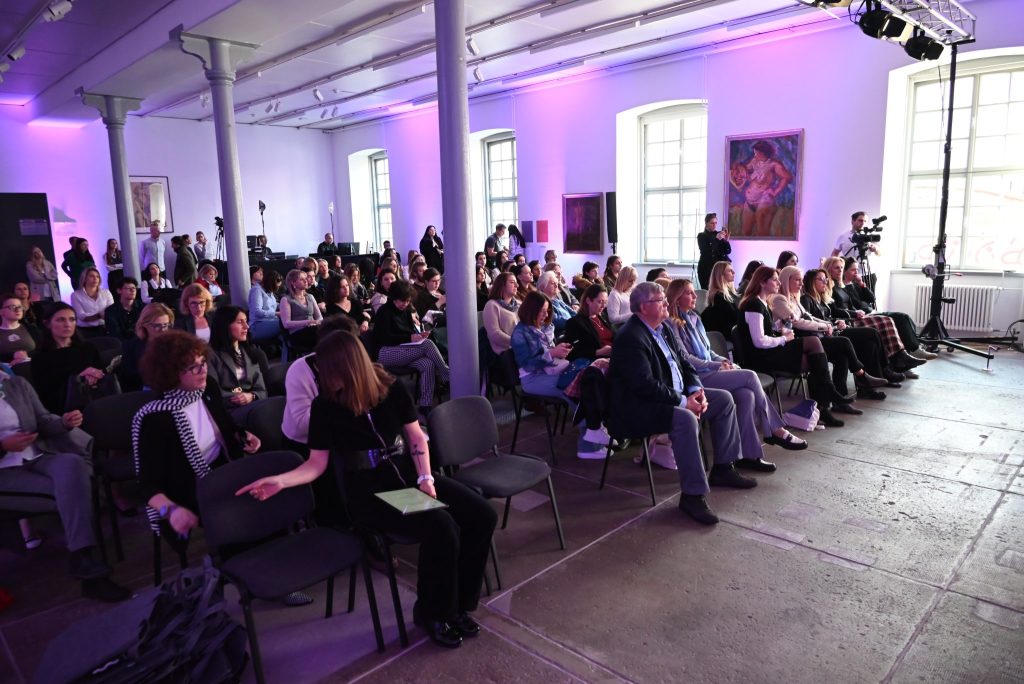To commemorate this year’s March 8, International Women’s Day, the University of Rijeka and the European Commission Representation in the Republic of Croatia organized ‘Day Zero’ of the second Women’s Weekend, held at the Museum of Modern and Contemporary Art in Rijeka on Thursday, March 7, 2024. This year’s Women’s Weekend lasts from March 7 to 10, and the rich program of ‘Day Zero’, free of charge for all visitors, began with an introductory panel gathering the representatives of the two institutions: Rector of the University of Rijeka, Professor Snježana Prijić Samaržija, Ph.D., and Mrs. Andrea Čović Vidović, Head of the EC Representation in Croatia. The discussion was moderated by Nevena Rendeli Vejzović, organizer of the Women’s Weekend.
Rector Prijić Samaržija emphasized the importance of discussing gender-sensitive topics, especially considering that, with progress in the implementation of gender-sensitive policies, more and more new topics come to the surface. The University of Rijeka actively participates in the creation of European policies and the implementation of gender-sensitive policies through various instruments, particularly its Gender Equality Plan and the activities of the UNIRI Gender Equality Council.
“We feel that Rijeka is very open and suitable for such topics, hence we decided to organize this event in Rijeka”, said Čović Vidović, referring to devastating statistics. Every day, on average, two women are killed in the territory of the EU and the number of harassed and murdered women is increasing. 80% of women take care of children and the infirm, while only 20% of men do the same work. Only 34% of women are at the top of the business world, and in Croatia, this figure is twice as low. Women are generally paid 10-20% less than men. While our impression may be a bit better, these numbers should definitely make us think.
Rector Prijić Samaržija added that the gender equality index in Europe is around 70%, while in Croatia, it is 10% lower – at around 60%. Progress is too slow and if we continue acting at this pace, it will take 3 generations to get closer to full equality. In science, the situation is getting better and there are more and more women, but when it comes to positions at the companies’ very top, women rarely apply for such positions at all, which indicates the persistence of certain determinants of patriarchy.
The program continued with a series of productive discussions and presentations in which participants touched upon several up-to-date topics, including the equal participation of women in the business world, financial freedom and independence, the criminal law dimension of gender equality, the importance of gender-sensitive budgeting, the future of business within the framework of new requirements for equality in administrative and supervisory boards, the status of women in public space, the alignment of business and private life, gender aspects of information disorders, the social role of universities in achieving gender equality, etc.
The panel on the (ir)reversibility of progress in gender equality, women’s, and human rights aroused great public interest. The panel hosted representatives of the diplomatic corps: H.E. Mr. William Jean M. de Baets, Ambassador of the Kingdom of Belgium to the Republic of Croatia, and H.E. Mrs. Jessica E. Blitt, Ambassador of Canada to the Republic of Croatia. The panel was moderated by Mrs. Andreja Čović Vidović.
‘Day Zero’ ended with a presentation by Danica Kragić Jensfelt, professor of computer science at the Royal Institute of Technology (KTH) in Stockholm and member of the International Science Council of the University of Rijeka, who also received her honorary doctorate in 2023 as one of the world’s leading female roboticists who, with her research and many years of pioneering work, contributed to AI development.
Other members of the University of Rijeka community also participated in the program, namely Assoc. Prof. Dalida Rittossa, Ph.D., Assoc. Prof. Adrijana Martinović,, Ph.D., Prof. Sanja Barić,, Ph.D., Daria Glavan Šćulac, Assoc. Prof. Ana Marija Sikirić Simčić, Ph.D., and Assist. Prof. Brigita Miloš, Ph.D.
